

Commentary:
Myat Soe (Mizzima)
Summary:
Summary:
Why does the regime remain deaf to the rest of the world? The reason is the regime had two trump cards in the form of Russia and China at the UNSC. Indeed, China and Russia, as permanent members of the U.N. Security Council, can promote or prevent meaningful U.N. action on Burma. Recently, the Burmese military regime agreed to let Russia's Glory International Pte Ltd search for gold and other minerals in the country's northern Kachin State, which borders China. Later, Lt. General Evnevich Valery G from the Russian Defence Ministry followed his visit to Burma. According to reliable sources, the regime is trying to acquire knowledge and nuclear technology from Russia to build nuclear reactors in the country for energy purposes since dealing with North Korea and Iran has been criticized by the neighbours and the international community. Another reason is that the regime is trying to strike a balance with China and find out an alternative source for military supplies. On the other hand, China's interest in Burmese gas and building military bases in Burma's islands are life supports for the ruling regime.
April 14, 2008
Myat Soe (Mizzima)

Dishonest Burmese rulers' decision to bar Aung San Suu Kyi from contesting the elections shows that its process leading to a democratic transition in the country is not convincing. The purpose of this decision was that the military regime threatened to ban the NLD and its leadership completely. This announcement evidently defied the international community by refusing to pursue democratization and national reconciliation. It appeared to be on the verge of a major U-turn, and it was aimed at undermining the on-going regional and international efforts.
Since the September people's movement in 2007, no political tangible result has been achieved. The regime did not free Daw Aung San Suu Kyi and other political prisoners which the international community has been urging for. The house arrest of U Tin Oo, the deputy leader of Aung San Suu Kyi's National League for Democracy (NLD) party was extended. More political prisoners have been locked up. The UN special envoy was not allowed to go back to Burma whenever he needed to follow up on the UNSC resolution. Freedom of press has been prohibited, and citizens have no space to express their views openly and peacefully. In addition, the junta's referendum law released in February 2008 prohibits people from criticizing or campaigning against the referendum process and imposes a penalty of three years in prison. In fact, the regime's lip service to political solutions, buying time, blaming the opposition, and attacking its own citizens will not take the place of substantial reforms and will not resolve the country's problems.
Why does the regime remain deaf to the rest of the world? The reason is the regime had two trump cards in the form of Russia and China at the UNSC. Indeed, China and Russia, as permanent members of the U.N. Security Council, can promote or prevent meaningful U.N. action on Burma. Recently, the Burmese military regime agreed to let Russia's Glory International Pte Ltd search for gold and other minerals in the country's northern Kachin State, which borders China. Later, Lt. General Evnevich Valery G from the Russian Defence Ministry followed his visit to Burma. According to reliable sources, the regime is trying to acquire knowledge and nuclear technology from Russia to build nuclear reactors in the country for energy purposes since dealing with North Korea and Iran has been criticized by the neighbours and the international community. Another reason is that the regime is trying to strike a balance with China and find out an alternative source for military supplies. On the other hand, China's interest in Burmese gas and building military bases in Burma's islands are life supports for the ruling regime.
Indeed, Russia and China have ignored many thousands of people in the war zones of Burma who are suffering growing humanitarian crisis for their own self-interests. They never take the burden of the UN for this humanitarian crisis. In doing so, the immoral self-interests will increase threats to Burma's neighbouring countries and the entire region. Currently, more than 4 million people are living in neighbouring countries, and one million people are suffering humanitarian crisis. The recent deaths on 9 April of 54 illegal migrant workers from Burma, who suffocated in the back of a container truck while being smuggled to the Thai resort island of Phuket, highlighted the vulnerability of foreign migrant labourers in Thailand, said UN International Labour Organization (ILO) officials. This tragedy underscored the need to for cooperation to fight against human trafficking, and similar plights in Malaysia, Singapore, India, Bangladesh, and other neighbours. These are obviously evidence that people are suffering humanitarian crisis under military rule. China and Russia should not prevent meaningful U.N. action on Burma. As a consequence, Russia and China will have to pay a huge political price when building a relationship with Burma's future generation.
Yet, Burma's prominent student activists group, widely known as '8.8.88 generation has called for a worldwide boycott of the 2008 Beijing Olympics in response to China's bankrolling of the military junta that rules Burma with guns and threats. The group also joined a growing chorus of critics urging an Olympic boycott over complaints ranging from China's human rights record to its failure to press Sudan to end the Darfur conflict and to resolve the Tibet issue. Certainly, the china involvement with the oppressive military regime of Burma has largely been questioned at the beginning of the Beijing Olympics. Now, the world leaders including Secretary-general Ban Ki-moon, UK PM Gordon Brown, German chancellor Angela Merkel, Canada's PM Stephen Harper, Kenyan Nobel Peace Prize winner Wangari Maathai had considered not attending Beijing Olympics opening ceremony. French President Nicolas Sarkozy is considering staying away, and U.S. President George W.Bush has not yet committed to attending the opening ceremony.
Certainly, China wants the Beijing Olympics to show off, and the freedom-loving people of Burma, Tibet, and Sudan are not allowed to do that. The voices of one world and one dream have loudly been heard, and it can not be possible that China can continue help to oppress human rights in Tibet, Burma, Darfur and elsewhere and still be considered untouchable for economic reasons.
Now, Burma's regime is going back to a major U turn again, and it is driving the country down a dangerous road. In fact, Burma's military rulers have announced they will hold a referendum on a draft constitution on May 10 and a general election in 2010. However, the opposition groups including 88 generation and the NLD called on the people of Burma to vote 'No' in the ballot boxes to prevent "the country from falling into the depths as a result of the junta's one-sided road-map. By voting 'No' we are not only against the junta's referendum, we want the junta and world to know that the people of Burma do not recognize every step of its road-map or their rule, a statement released by 88 generation group said. The time of casting "No Votes" for the junta's U-turn is near and let us see how the result will affect the Beijing Olympics in political terms. China should not remain deaf to the people of Burma.
The question is: will China defend its policy for the notorious Burmese junta at the UNSC again? Truth to be told, the more China supports Burma's junta, the higher the future relationship of Sino-Burma will be at risk and will cost China dearly in political terms.
(The writer Myat Soe is a former Central Executive Committee member of All Burma Federation of Student Unions (1988) and currently serves as the Research Director of Justice for Human Rights in Burma. He graduated from Indiana University, and earned his MBA from Indiana Wesleyan University.)





















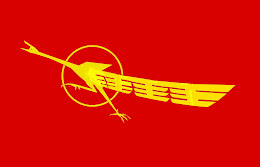





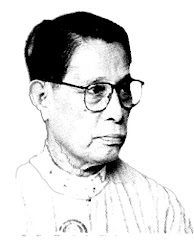


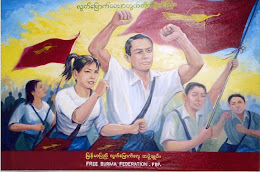





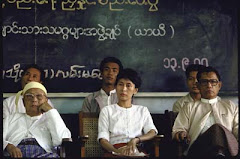

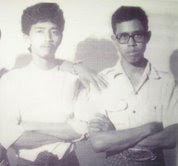

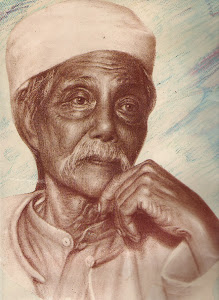
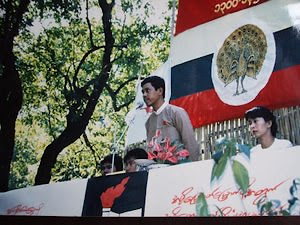
No comments :
Post a Comment